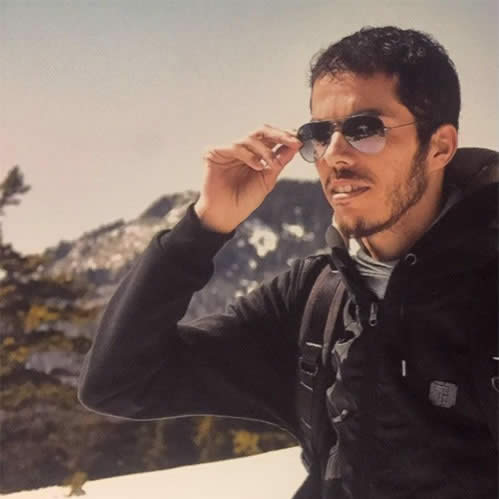Working in High Risk Countries: Safety Tips From An Officer On The Ground
When working in hostile regions, you want a support team who understands the risks associated with working in conflict zones; people who know where you are at all times and who give valuable advice on potentially volatile security situations. In Libya, the person all CTG staff should have on speed dial is Raid Al Kilany, our Field Security Officer (FSO). With significant experience in security, logistics and project management, and extensive local knowledge, Raid is responsible for our staff’s safety and is in constant communication with our teams.
He shares his top safety tips while working in a country where the security situation is high-risk and unpredictable:
Always remember that you are neither trained nor paid to be a hero.
– Raid Al Kilany, Field Security Officer, Libya

CTG Libya team: Alaa Ben Hamza, Hajar Shijoub, Raid Al Kilany
- Have your emergency contact numbers with you
My usual advice is for staff to keep all emergency contacts (your FSO, your nearest hospital/clinic, the police) on speed dial. Your CTG ID card will have your FSO’s number and international emergency number on it; our CTG DOC app also has an SOS call button that will connect you with the global emergency response team.
- Company security instructions & travel warnings must be followed
If you are making a trip in a high-risk country without following the security instructions or informing the FSO and something happens to you, you will make it much harder on the security team and yourself to resolve the situation. CTG has the SafeTrip® process which involves pre-planning and tracking for all trips, and enables management to respond quickly in a crisis situation.
- Be informed
All staff should be knowledgeable about the political situation in the country they are in. It will help you to understand the environment and assess the situation and how best to act.
- Personal first aid kit
Each staff must carry a First Aid kit with Cold and Flu medication, antiseptic lotion, plasters, and paracetamol. Make sure to include latex gloves, bandages and trauma dressings. All staff must take first aid courses and keep their skills up to date.
- Emergency cash
Have emergency cash with you; the more high-risk the country, the more cash should be carried. Small bills in particular are very useful.
- Pack an evacuation emergency bag (Grab Bag)
If you’re working in a high-risk country, you should always have a carry backpack ready. This includes your valuables, important documents and ID, a small first aid kit, a few USD/EURO bills, bottled water and snacks. Watch our security video on what to pack in your Grab Bag, here.

- Stay calm and follow instructions
If trouble kicks in, always follow the advice of your FSO. Communicate with your security team and your family that you are safe, and share your location and condition. CTG’s international 24/7 global response number (+356 277 80016) is a helpline managed by an experienced crisis management and response team, you can call this number directly or via our app.
- Your safety is your first priority
Don’t worry about your belongings such as laptop and luggage. Look after yourself and your personal safety first, before trying to help others. Always remember that you are neither trained nor paid to be a hero.
- Keep your important documents safe
Your passport must be kept in a safe place such as the hotel safe, or must be carried with you at all times. Always have a scanned copy of all important documentation in Cloud Drive, to access remotely.
- Stay well rested – your phone too
The work we do is challenging, it’s important to take care of yourself, rest well and save energy when possible. The same goes for your phone: it could be your lifeline, so change screen brightness and data settings to extend battery life, or carry a charged power bank.
- Communicate with your Field Security Officer
Your FSO is your most important contact. Always communicate your status, your location and your condition to him/her and be willing to follow their advice and move when security asks you to.
If you work for CTG, make sure you’ve downloaded our CTG Duty of Care app for security alerts, straightforward insurance claims and direct access to our emergency helpdesk. Download it for Apple or for Android.
Find out more about CTG’s Duty of Care here
RELATED NEWS
Rania Kharma, Libya
Field Operations Manager for Community Stabilization Project
Salah Khalifa, Libya
DTM Operations Assistant


